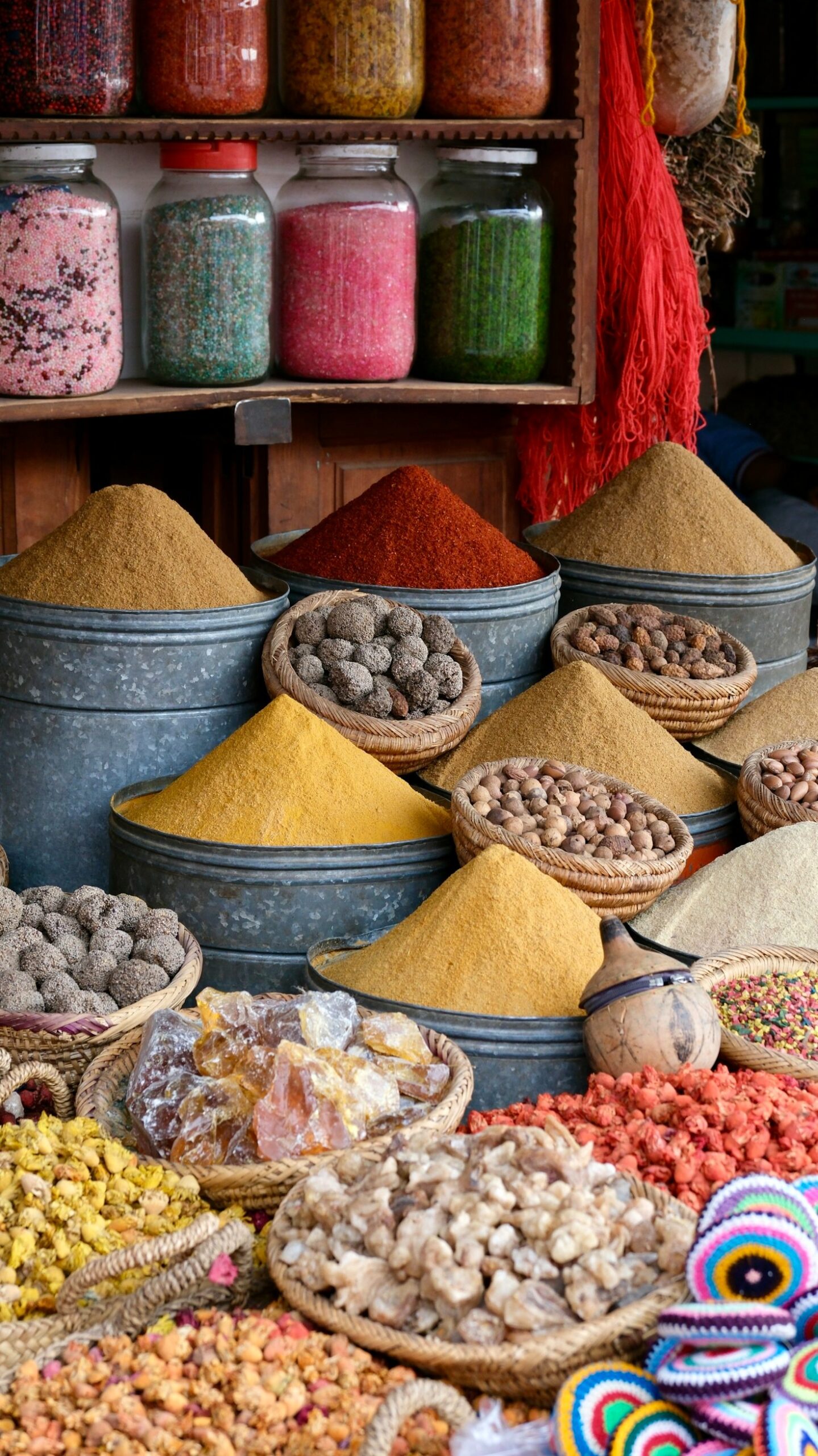Exploring the Bountiful Harvest: Tanzania’s Diverse Agricultural Products Ready for Worldwide Shipping
Tanzania, a land of breathtaking landscapes spanning the Indian Ocean coastline to the majestic peaks of Kilimanjaro, is not only a tourist’s paradise but also an agricultural powerhouse. Its rich and varied topography, coupled with diverse climatic zones, creates an ideal environment for cultivating an extraordinary range of crops. From the fertile highlands yielding aromatic coffee and tea to the sun-drenched plains producing staple grains and exotic spices, Tanzania’s agricultural sector is a vibrant tapestry of produce, increasingly positioned to meet global demand. This exploration delves into the breadth of Tanzania’s agricultural bounty, highlighting its potential to enrich markets worldwide.
A Land Blessed: The Geographical Tapestry and Agricultural Potential
Situated in East Africa, Tanzania boasts an impressive geographical diversity that directly translates into its agricultural prowess.
Coastal Plains: Characterized by warm, humid climates, these regions are ideal for coconut, cashew, and various spice cultivation.
Central Plateau: A vast semi-arid to arid zone, suitable for drought-resistant crops like sorghum, millet, and sunflower, as well as extensive livestock farming.
Highlands: Encompassing areas around Mount Kilimanjaro, Arusha, Mbeya, and the Southern Highlands, these regions benefit from rich volcanic soils and higher rainfall, making them perfect for high-value cash crops such as coffee, tea, and horticultural products.
Lake Zones: Adjacent to Lake Victoria and Lake Tanganyika, these areas support rice, cotton, and staple food production due to their fertile soils and water availability.
This natural endowment has made agriculture the backbone of Tanzania’s economy, employing a significant portion of its population and contributing substantially to its GDP. The diversity isn’t just a matter of quantity but also a testament to the potential for cultivating niche, high-quality products that appeal to discerning international buyers.
The Foundation: Staple Crops for Food Security and Beyond
While many of Tanzania’s agricultural products are destined for export, the foundation of its farming lies in staple crops that ensure food security for its growing population. These crops, however, also hold significant potential for value-added processing and export.
Maize: The primary staple food (ugali), grown extensively across the central, western, and southern highland regions. With improved farming techniques, surplus maize could be exported as grain or processed into flour.
Rice: Cultivated in regions like Mbeya, Morogoro, and Shinyanga, Tanzanian rice is known for its quality. Expansion and mechanization offer opportunities for increased export of various rice varieties.
Cassava: A drought-resistant powerhouse, especially prevalent in coastal and lake regions. Its versatility allows it to be processed into flour, starch, or animal feed, opening doors to industrial applications and export.
Sorghum and Millet: Crucial crops in semi-arid zones, providing resilience against climate variability. These grains are gaining international attention in health-conscious markets.
These staples, while fundamental to local consumption, represent a substantial sector ready for enhanced processing, packaging, and distribution to global markets.
Table 1: Key Tanzanian Staple Crops and Their Potential
Crop Type Primary Growing Regions Typical Uses Value-Added Export Potential
Maize Central, Western, Southern Highlands Staple food (ugali), livestock feed Processed flour, animal feed, starches
Rice Mbeya, Morogoro, Shinyanga, Coast Staple food, brewing Specialty rice grains, rice flour
Cassava Coastal, Lake, Southern Regions Staple food, flour, industrial starch Dried chips, flour, industrial starch
Sorghum Semi-arid Central Regions Staple food, brewing, animal feed Specialty grains, processed healthy snacks
Millet Northern and Central semi-arid zones Staple food, porridge, brewing Gluten-free flours, health food products
The Global Appeal: Distinctive Cash Crops Driving Exports
Tanzania’s cash crops are its calling card to the international community, renowned for their quality and unique characteristics.
Coffee: Tanzania is a significant producer of both Arabica and Robusta.
Arabica: Primarily grown on the slopes of Mount Kilimanjaro, Mount Meru (Arusha), and in the Southern Highlands (Mbeya), Tanzanian Arabica is celebrated for its bright acidity, rich aroma, and medium body, highly sought after in specialty coffee markets.
Robusta: Predominantly from the Kagera region, used for its stronger flavor and higher caffeine content, often found in blends and instant coffee.
Tea: Grown in the cool, misty Southern Highlands (Mufindi, Rungwe), Tanzanian tea is known for its bright, brisk character, making it a valuable component in black tea blends worldwide.
Cashew Nuts: Predominantly from the coastal regions of Mtwara and Lindi, Tanzanian cashews are acclaimed for their large size, sweet taste, and high quality, making them a premium choice for snacking and confectionery.
Spices: Zanzibar, the ‘Spice Island,’ is famous for its cloves, which are prized globally for their strong aroma and medicinal properties. Other spices like ginger, cardamom, black pepper, and cinnamon also thrive in various regions.
Cotton: Primarily grown in the Lake Zone (Sukumaland), Tanzanian cotton provides quality lint for the textile industry and oil from its seeds.
Sisal: Once a leading export, sisal from Tanga and Morogoro is a natural fiber used for ropes, twines, carpets, and is now seeing renewed interest for eco-friendly products like geotextiles and pulp.
Table 2: Major Tanzanian Cash Crops and Their Global Significance
Crop Type Primary Growing Regions Key Characteristics / Notes Global Demand & Export Potential
Coffee (Arabica) Kilimanjaro, Arusha, Mbeya Rich aroma, medium body, high altitude Specialty coffee markets worldwide
Coffee (Robusta) Kagera Strong flavour, higher caffeine content Blends, instant coffee industry
Tea Southern Highlands Bright, brisk flavour, good for blending Black tea, specialty blends, iced tea
Cashew Nuts Mtwara, Lindi, Coastal High quality kernels, sweet taste Snacking, confectionery, ingredients
Cloves Zanzibar (Pemba, Unguja) Aromatic spice, medicinal properties Spice markets, essential oils, medicinal
Cotton Lake Zone (Sukumaland) Quality lint for textiles, oil from seeds Textile industry, edible oil
Sisal Tanga, Morogoro Strong natural fibre, eco-friendly Ropes, carpets, pulp, geotextiles
Horticulture: Fresh Produce and Niche Market Opportunities
The horticultural sector in Tanzania is rapidly expanding, driven by increasing local and international demand for fresh fruits, vegetables, and flowers.
Fruits: A wide array of tropical fruits thrives, including succulent mangoes, creamy avocados, sweet pineapples, diverse banana varieties, and citrus fruits like oranges and tangerines. The unique climate allows for staggered harvests, ensuring year-round availability for some produce.
Vegetables: Tomatoes, onions, cabbages, leafy greens, and various peppers are cultivated, with potential for organic certification for discerning markets.
Flowers: An emerging sector, particularly cut flowers, capitalizes on air freight links to reach European and Middle Eastern markets with high-value, fresh blooms.
The short shelf-life of these products necessitates efficient logistics and cold chain management, areas where continuous investment is paving the way for greater export volumes.
Emerging and Underutilized Sectors: A Glimpse into the Future
Beyond the traditional crops, Tanzania holds immense potential in several emerging and underutilized agricultural sectors:
Oilseeds: Sunflower, groundnuts, and sesame are important for edible oils and animal feed domestically, but their high-quality produce also has export potential.
Legumes: A variety of beans and pulses are grown, vital for nutrition and soil fertility rotation, with increasing global demand for plant-based proteins.
Honey and Beeswax: Given Tanzania’s vast natural forests and diverse flora, the production of organic honey and beeswax is a significant, yet often underestimated, sector offering unique, high-quality products.
Organic Farming: A growing movement towards sustainable and organic practices positions Tanzanian farmers to tap into the lucrative global organic food market, offering chemical-free produce that commands premium prices.
The Path to Global Markets: Quality, Sustainability, and Logistics
Tanzania’s ambition to become a major player in global agricultural trade rests on several pillars: enhancing quality control, promoting sustainable farming practices, and strengthening logistics.
Quality Assurance: Adherence to international standards and certifications (e.g., GlobalG.A.P., Fair Trade) is crucial for building trust and accessing premium markets. Investment in modern post-harvest handling and storage facilities is also vital.
Sustainability: Tanzanian agriculture is increasingly embracing environmentally friendly practices, including organic farming, water conservation, and agroforestry, which resonate strongly with conscious consumers worldwide.
Logistics: Strategic investments in infrastructure, including improved roads, expanded port capacities (Dar es Salaam, Tanga), and enhanced air cargo facilities, are streamlining the process of getting fresh and processed products from farm to table across continents.
This concerted effort ensures that the rich bounty of Tanzania can reach any part of the world reliably and efficiently. We take pride in facilitating this global connection.


Conclusion: Tanzania’s Agricultural Promise, Delivered Worldwide
Tanzania’s agricultural landscape is a testament to its natural wealth and the industrious spirit of its people. From the aromatic coffee of Kilimanjaro to the prized cashews of the coast, and the diverse range of staple foods and emerging organic produce, the country offers a rich and varied basket of goods. As global demand for high-quality, sustainably sourced agricultural products continues to rise, Tanzania stands ready to meet this need, leveraging its fertile lands, dedicated farmers, and improved infrastructure.
The opportunity to bring these exceptional products to international markets has never been greater. We are committed to bridging the gap between Tanzania’s agricultural abundance and consumers around the globe. We offer worldwide shipping, ensuring that the finest Tanzanian produce can reach your doorstep, wherever you are. For inquiries about sourcing the finest Tanzanian agricultural products and leveraging our worldwide shipping capabilities, please contact us at https://mozzarellacompanylimited.com/contact/.



Leave a Reply